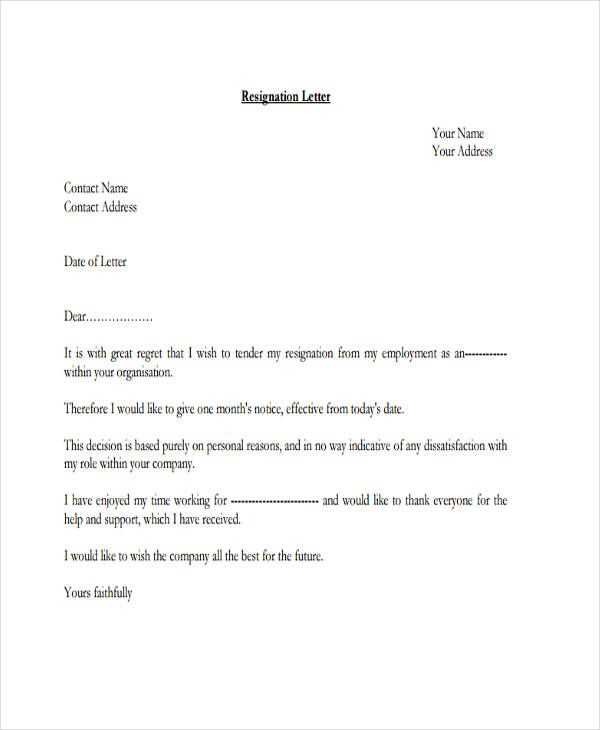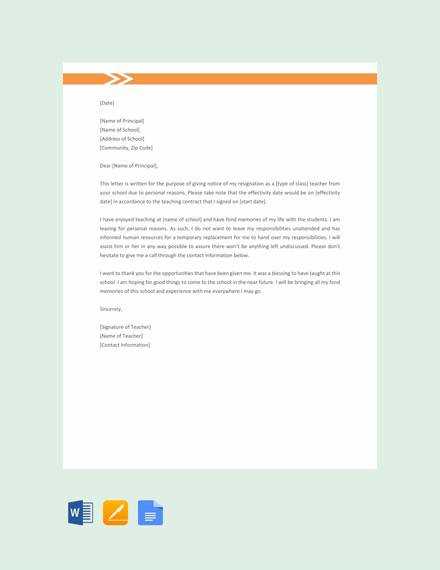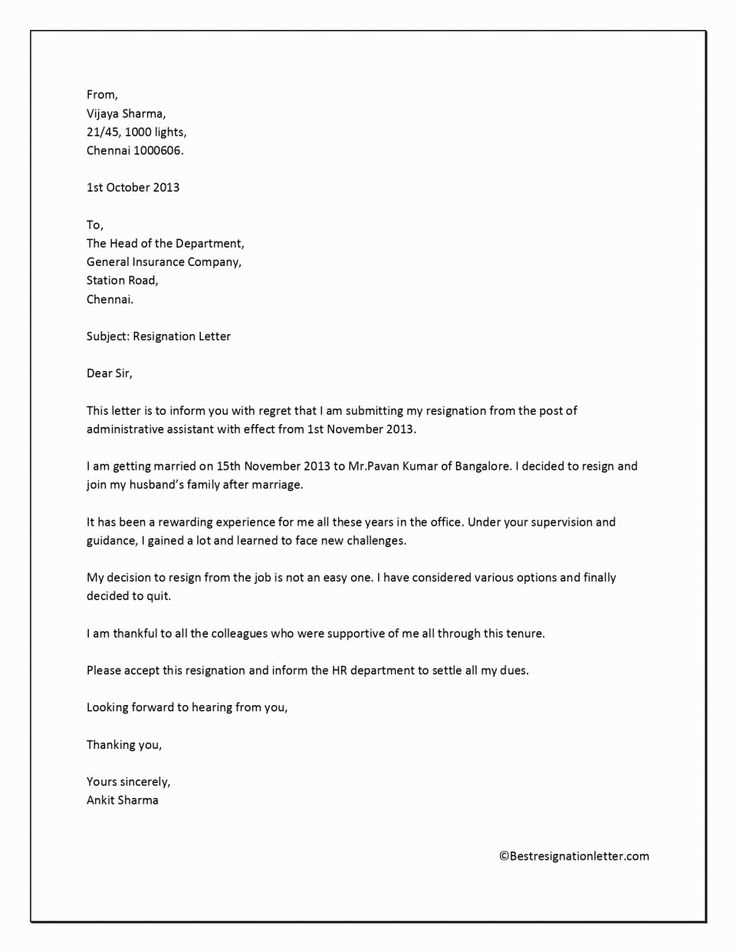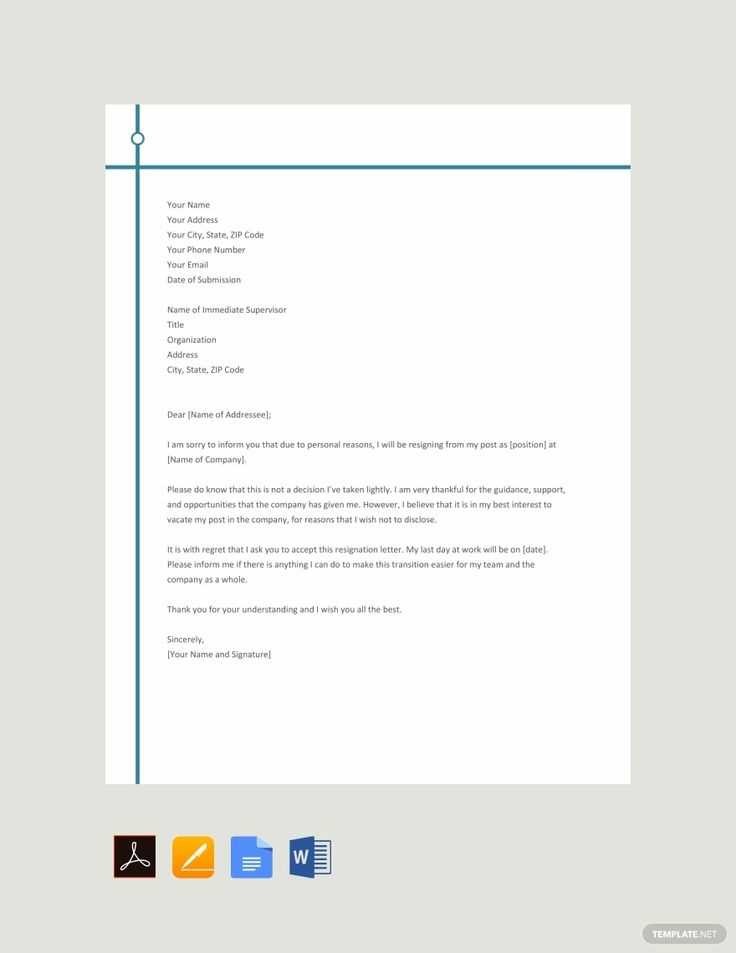Resignation Letter Template for Personal Reasons

Leaving a job is never easy, especially when the decision stems from personal circumstances. When informing your employer, it’s important to communicate your departure professionally and respectfully. This guide will help you structure a thoughtful and tactful farewell message that ensures a smooth transition while maintaining a positive relationship with your current employer.
Key Parts of a Goodbye Message
When writing a farewell note, there are a few essential components to include. You should express gratitude, briefly explain your decision, and maintain a tone of professionalism throughout. Here’s a breakdown of what should be covered:
- Introduction: State your intention clearly, ensuring your message is direct but respectful.
- Gratitude: Thank your employer for the opportunities and experiences gained during your time at the company.
- Explanation: Provide a brief and polite explanation of why you’re moving on, without going into too much detail.
- Closing: Offer to help during the transition period and express good wishes for the company’s future.
Crafting the Opening

The first part of your note should immediately address your intention to leave, yet remain respectful and appreciative. A simple and direct approach works best here. You might want to say something like: “I would like to formally inform you that I will be stepping down from my position at [Company Name] due to personal matters.”
Expressing Gratitude

Take the time to thank your employer for the experience and the opportunity to grow within the company. A sentence such as “I appreciate all the support and opportunities you’ve provided me during my time here,” can leave a positive impression and highlight your professionalism.
What to Avoid When Writing Your Message
While it’s important to be honest, avoid going into too much detail about the reasons for your decision. There’s no need to explain the personal circumstances behind your choice. Keep your tone neutral and avoid any negative comments about the company, colleagues, or work environment.
Additionally, do not rush your message. Take time to ensure that the tone remains respectful, and always proofread for any grammatical or spelling errors.
Final Words
Ending your time at a company can be difficult, but a well-written and respectful farewell note will leave a lasting positive impression. By following the structure outlined above, you can ensure your departure is professional and courteous, paving the way for future opportunities and maintaining positive connections with your employer.
Why a Professional Farewell Note Matters
When stepping away from a position, it is important to inform your employer in a way that is respectful and maintains professionalism. The message you provide serves as a reflection of your character and ensures a smooth transition, leaving a positive impression even as you move on. Crafting such a note requires careful attention to tone and content to preserve a good relationship with your employer for future opportunities.
Key Components of Your Farewell Message

Every farewell message should contain several key elements to convey your decision thoughtfully. Start with a clear statement of your intention to leave. Then, express gratitude for the experience, skills gained, and any support received during your time at the company. Keep the explanation of your departure brief and polite, and close by offering assistance with the transition process. A well-rounded message will reflect your professionalism and maturity.
Common Pitfalls to Avoid
There are several mistakes you should avoid when crafting your message. First, never dwell on negative aspects of your experience or criticize the company. Second, refrain from over-explaining your decision; keep it concise and respectful. Lastly, ensure that your message is free of errors. Rushed or poorly written communication can leave a bad impression, so always take the time to proofread.
In addition, it’s important to consider the timing of your message. Submit it at the appropriate moment, allowing sufficient notice to your employer to adjust and make necessary arrangements. By following these guidelines, you ensure that your exit is handled in a way that upholds your professional reputation.